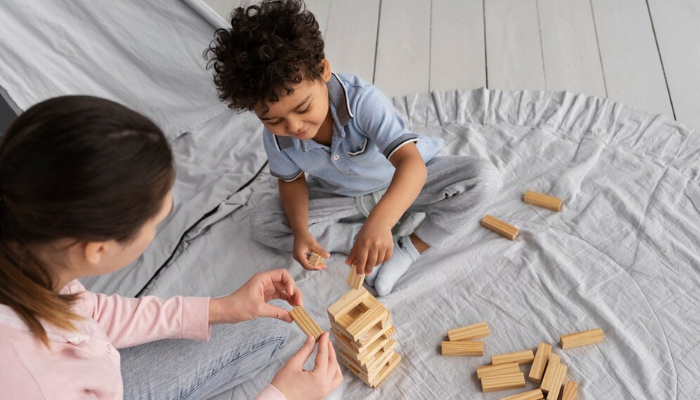

Parenting in the modern world can often feel overwhelming. With so many demands, distractions, and expectations placed on parents, it’s easy to fall into the trap of believing that “more is better.” More toys, more activities, more achievements for your children — the pressure can be immense. But what if the key to raising happier, more balanced children lies in less?
Minimalism in parenting encourages us to focus on what truly matters and to simplify our approach to raising children. By eliminating excess — whether it’s material possessions, over-scheduling, or unnecessary stress — we can create a more peaceful, nurturing environment that fosters emotional well-being and helps children develop a healthy mindset.
In this article, we’ll explore how minimalism can benefit both parents and children, making for a more harmonious family dynamic and providing children with the tools to thrive.
Minimalism in parenting is about prioritizing quality over quantity. It’s about simplifying the way we approach raising children so that we can focus on the essential things that truly benefit their well-being. This means reducing the clutter in our homes, minimizing over-scheduling, and focusing on providing our children with meaningful experiences rather than filling their lives with unnecessary possessions or activities.
The core idea of minimalism in parenting is to remove distractions and excess so that both parents and children can focus on what matters most: meaningful relationships, emotional well-being, and development.
One of the first steps in minimalism for parenting is decluttering your home. A cluttered environment can lead to feelings of stress, overwhelm, and distraction, both for parents and children. By simplifying your living space, you create a more peaceful environment that encourages calmness and allows everyone in the family to focus on important activities, such as spending quality time together.
Here’s how to start decluttering your home for a more peaceful environment:
By decluttering, you can reduce distractions and help your children focus on meaningful play and activities.
In today’s fast-paced world, children’s schedules can quickly become over-packed with extracurricular activities, playdates, and school demands. While these activities can provide valuable learning experiences, too much stimulation can lead to burnout, stress, and fatigue. Minimalism in parenting encourages us to simplify our children’s schedules so they can have more time for unstructured play, rest, and family bonding.
Here’s how to simplify your child’s schedule:
By simplifying your child’s schedule, you reduce stress and allow them to experience the joy of having time to themselves.
In a consumer-driven society, it’s easy to fall into the trap of thinking that more toys, more gadgets, and more things will make your children happy. However, research has shown that material possessions do not contribute to long-term happiness. Instead, fostering emotional well-being and a strong sense of self is what leads to happiness and fulfillment.
Here’s how to focus on emotional well-being rather than material possessions:
By focusing on emotional well-being and gratitude, you help your children develop a sense of happiness that is not dependent on material possessions.
Minimalism in family activities is about creating meaningful experiences that allow your children to learn, grow, and connect with you. It’s not about doing more, but about doing the right activities that align with your values and bring joy to the family.
Here’s how to embrace minimalism in family activities:
By embracing simple, meaningful family activities, you foster stronger relationships and create more fulfilling memories.
Minimalism in parenting also encourages children to engage in independent play and develop their creativity. With fewer toys and less screen time, children are more likely to use their imagination and explore their interests in a deeper way.
Here’s how to encourage independent play and creativity:
Independent play fosters creativity, problem-solving skills, and self-reliance.
One of the most powerful ways to embrace minimalism in parenting is by teaching your children the value of simplicity. By modeling a minimalist lifestyle, you help your children understand that happiness doesn’t come from having more, but from being present and appreciating the simple joys in life.
Here’s how to teach your child the value of simplicity:
By teaching your children the value of simplicity, you help them build a life that focuses on what truly matters.
Minimalism in parenting is about creating a life that is focused on what truly matters — emotional well-being, meaningful relationships, and fulfilling experiences. By decluttering your home, simplifying your child’s schedule, and focusing on quality over quantity, you can create a peaceful, nurturing environment that promotes happiness and balance.
By embracing minimalism, you are not only raising happier children, but also teaching them valuable lessons about living intentionally and appreciating the simple joys in life.